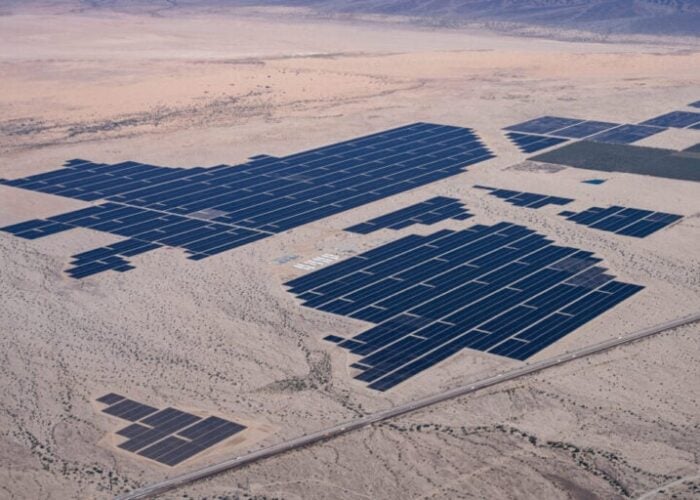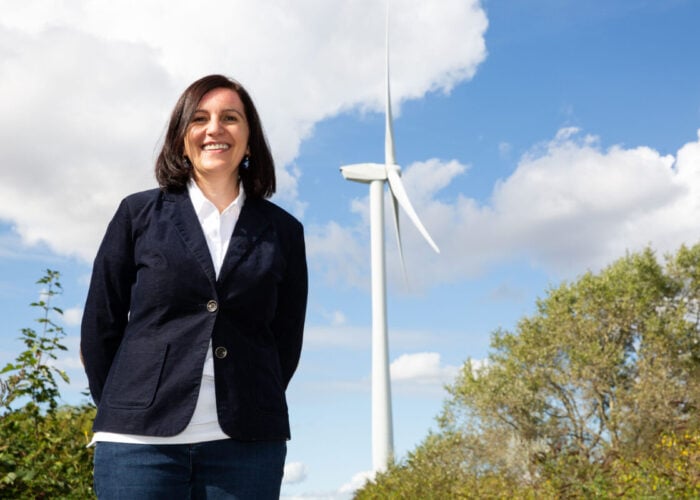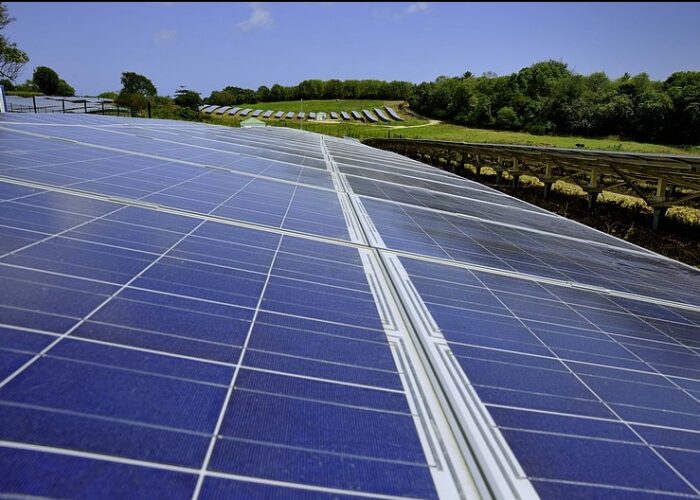The solar industry must grow up and revamp its approach to lobbying, a panel of US solar and utility experts have said.
Speaking at the opening session of the SPI exhibition in Las Vegas, former NRG CEO David Crane, said the sector had huge potential and now had to match that scale with its behaviour.
Unlock unlimited access for 12 whole months of distinctive global analysis
Photovoltaics International is now included.
- Regular insight and analysis of the industry’s biggest developments
- In-depth interviews with the industry’s leading figures
- Unlimited digital access to the PV Tech Power journal catalogue
- Unlimited digital access to the Photovoltaics International journal catalogue
- Access to more than 1,000 technical papers
- Discounts on Solar Media’s portfolio of events, in-person and virtual
“The solar industry has to stop acting like it’s the alternative energy industry, because that puts you on the kids' table. This is the primary source of new generation in the United States in 2016. We belong on the adult table,” said Crane who is now with sustainability and resource scarcity private equity firm Pegasus Capital. He is also on the board of ACWA Power.
Crane left NRG, a largely coal-based utility, after a period of investing heavily in solar left played poorly with shareholders. He added that the industry was capable of scaling up greatly, despite conservative forecasts from bodies like the International Energy Agency, citing examples from other sectors including smartphone penetration.
“Regardless of where the data has come from, people linearly extrapolate from a small number and after 40 years get another smaller number, but there is such a thing as exponential growth and I think the solar industry is on the cusp of that,” said Crane.
.@DCCleanEnergy speaking at #SPIcon: I am not into #renewables, I'm into #solar. pic.twitter.com/oQtFIR5dKw
— Carl Siegrist (@CarlSiegrist) September 13, 2016
As part of the panel’s roadmap toward maturity, Nat Kreamer, president and CEO of Spruce, formerly Clean Power Finance, urged the sector to review how it funds and executes its lobbying efforts.
“Not enough people invest in policy,” he said. “We don’t invest as much in policy as the wind industry. Our politics give us broader reach, we’re truly bi-partisan, we have this awesome opportunity but it is like pulling teeth,” said Kreamer. He added that the industry had to invest in “options for its future” rather than choosing only to fund lobbying on specific issues as and when they arise.
The clear example is the industry’s targeted, and ultimately, successful campaign to secure an extension to the investment tax credit. Steve Malnight, senior vice president, regulatory relations at the Pacific Gas & Electric Company, and chair of the Smart Electric Power Alliance, called on utilities and solar companies to work together on the integration of more solar power.
“Both sides have generally been very short-term focused, ’what’s the problem directly in front of me today?’ I understand why smaller growth companies tend to be a little short-term focused but utilities should be thinking long-term,” he said.
In a lively and wide-reaching discussion chaired by Stanford University’s Jeff Ball the group also noted the significance of the election characterising it as “relentless hostility” versus someone who can build on the work of the previous eight years. If Donald Trump were defeated by Hillary Clinton, she would have an opportunity to do something “creative” said Crane, and unlike the first years of the Obama administration there would be no “triage” related to the financial crisis.







